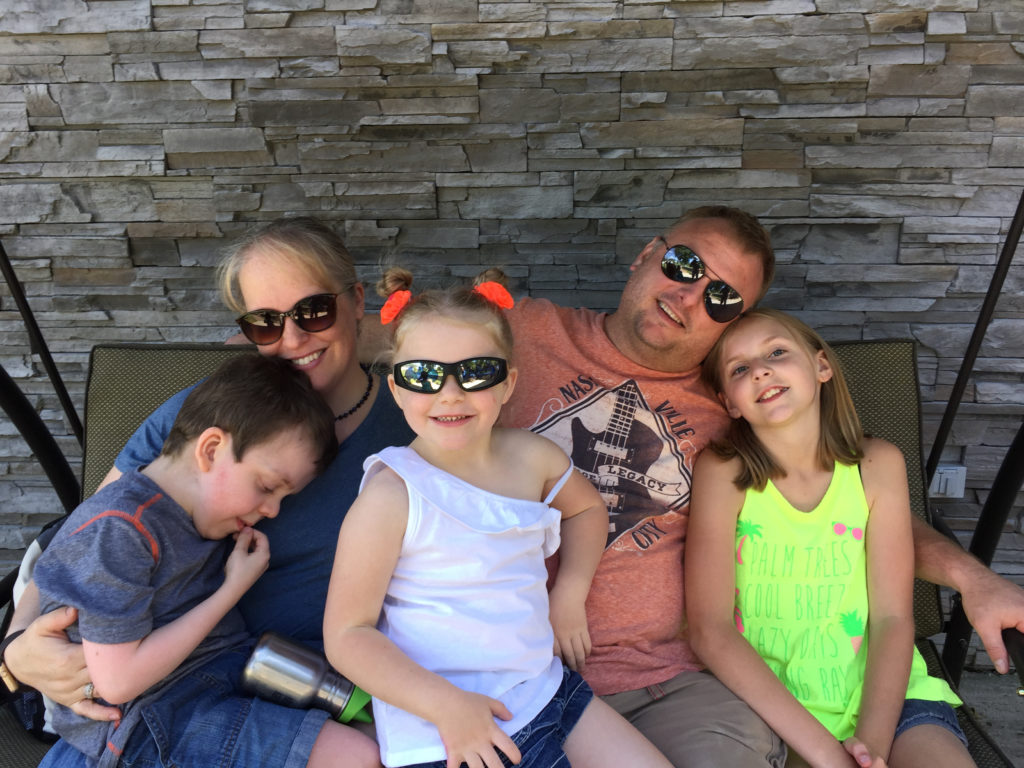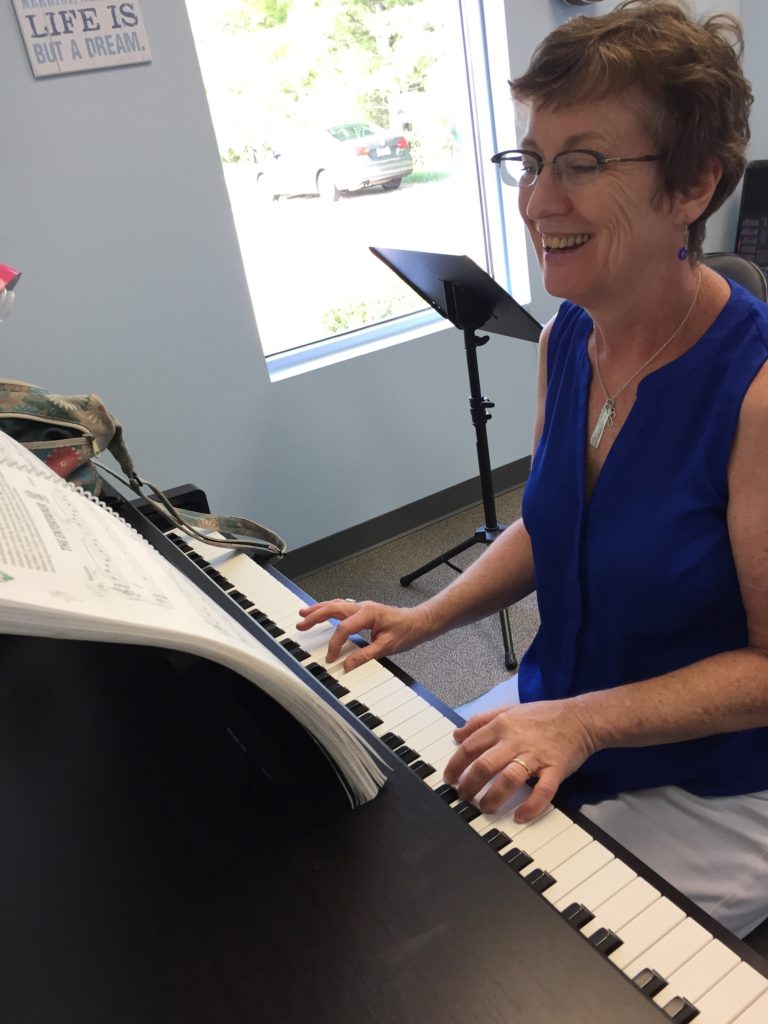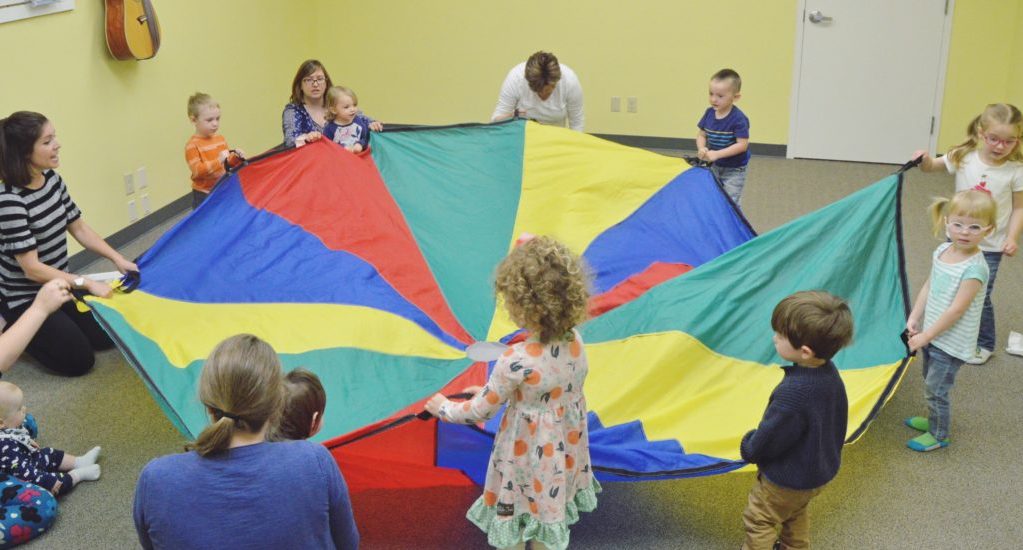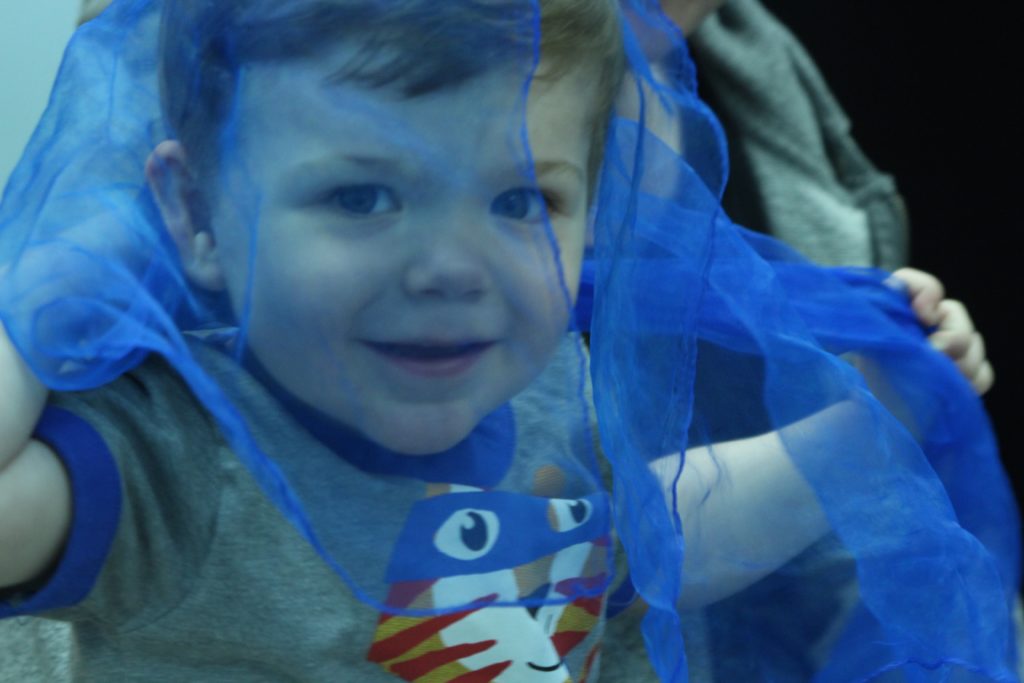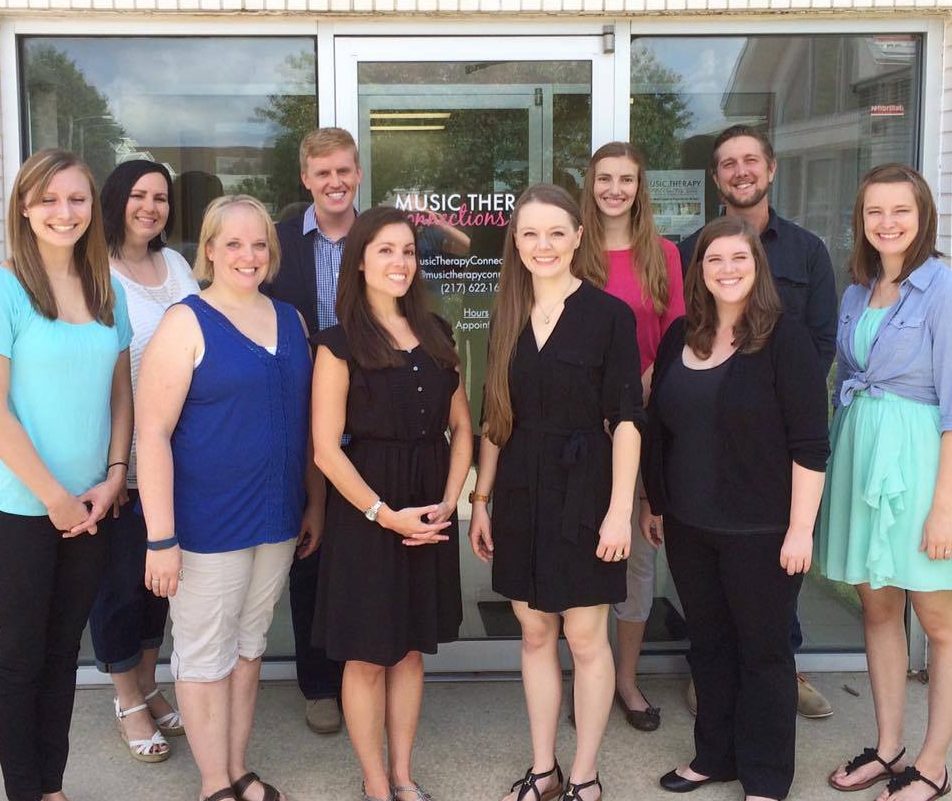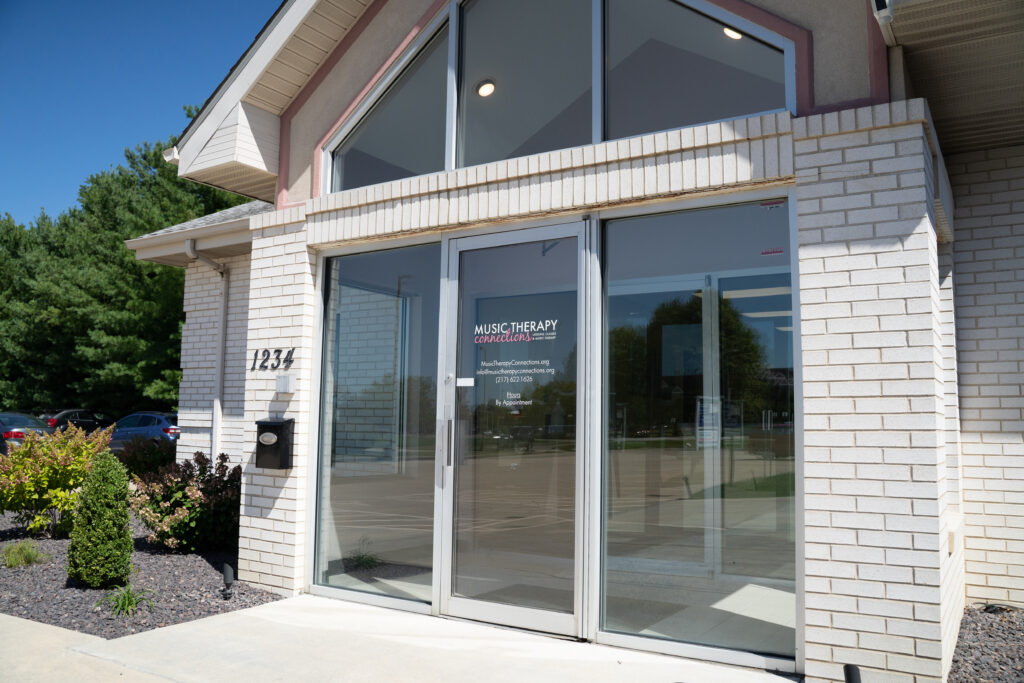by Rachel | Jul 25, 2017 | Lessons, MTC

We love our team at Music Therapy Connections! Each of our instructors has a set of unique gifts and talents that makes them a perfect fit for so many of the families we work with in the studio.
In a recent Facebook live video, we shared about the importance of finding the right teacher for you! Every student is just as unique as their teacher, so finding the right fit is important.
We want you to know even more about the teachers we have on our team at Music Therapy Connections by sharing a blog post featuring fun facts and interesting details about each team member.
First Up: Becky Waddell
Becky teaches piano and guitar at Music Therapy Connections. Her background includes a Master of Elementary Education, Master of Music Composition, and Bachelor of Music Theory and Composition.
Becky plays several instruments including the saxophone, clarinet, flute, piano, voice, guitar, and ukulele. Becky loves to practice and is always working to improve her skills. She’s currently focused on piano, guitar and ukulele.
On top of working at MTC, Becky is also adjunct music faculty at Lincoln Land Community College where she will be performing in the faculty recital during the 2017-2018 school year.
Becky has performed on stage and in the orchestra pit in numerous musicals. She fills in on saxophone with the Lincoln Land Community College Big Band when needed.

Becky resides in Pawnee with her husband and three children. She considers herself to be quite creative and extremely reliable. She says could eat pizza and pasta every day of the week and can’t function without her morning coffee.
When asked what she enjoys doing when she’s not working or with her family, Becky said, “I love love love going to musicals and long to have the stage lights suck me in again.”
We LOVE having Becky as part of our team! She currently works with several students but is accepting new students as well. If you or a family member is interested in lessons, be sure to fill out our registration form HERE. Stay tuned for more posts featuring each of our individual instructors and therapists.
by Alisabeth Hopper | Jul 24, 2017 | Lessons, MTC

I cannot count at this point how many adults I have spoken with who have said, “I always wanted to learn how to play piano, but I never took lessons” or even “…but its too late”. I know that this is a very real thought and fear for some adults, but I have news for you: your lifelong dream can still be realized!
At Music Therapy Connections, we serve people of all ages & abilities. We are blessed to have adult students taking piano, guitar, and voice lessons. Some have musical experience, while others were true beginners when they started lessons.
You may be thinking: children learn so much more quickly than adults and have more brain plasticity to learn something new. And to that I say yes, but as an adult you have something even better — wisdom! And adults have a greater understanding of patterns, structure, and simple ideals like fractions which are all very important in creating music.
Music lessons can benefit all of us in a variety of ways, and we often talk about how music with children can help them to quicken their mental processing in Math and other core subject areas. But how can music benefit adults?
- Taking music lessons, especially involving and instrument engages the brain in complex processing and improves multitasking skills.
- In addition, lessons of all varieties engage the memory center of the brain in a very unique way. For most adults, working toward improved memory can only benefit them!
- Voice lessons in particular can improve breath support, posture, and more.
- Most importantly, lessons in adulthood often give our students an additional sense of purpose. We want our students to walk away with a joy for music and I see this the most clearly in our adult students
In fact, every music teacher I have ever met still considers themselves a student. Unlike some skills, music is an ever flowing and ever growing art medium. We never reach perfection, because there is no such thing. Instead all musicians beginners, professionals, and experts alike are forever exploring music in complexity, style, and sometimes additional instrumentation.
The bottom line is that regardless of your background, experience, or age, it is never too late to fulfill your goal of learning an instrument. Look at it as an opportunity to take on a challenge, go outside your comfort zone, and acquire brand-new skills.

by Alisabeth Hopper | Jul 12, 2017 | Class Registration, MTC

The short and sweet answer: consistency is key.
You may be wondering…does it really matter if my little ones attend every session? The answer is yes! Consistency in class attendance not only provides your little ones with the opportunity to begin loving, playing, and creating music, but is also a great resource to continue supporting your little ones’ development and continually working toward those ever changing developmental markers!
We love to facilitate classes which instill a love of music in our young people. But, did you know that we build these classes to help children grow toward their academic, social, and motor skills as well? Rachel Rambach & Katey Kamerad are our Music Therapy Connections co-owners and music therapists. They put their expertise to work creating specialized classes for your unique little ones ages birth to five years.

When you register for a class, you have the choice of a variety of morning and late afternoon/evening times and days. You can choose the most appropriate 45-minute class for your family’s busy schedule.
Here is the best part: when you purchase the All-Access Class Pass you are invited to attend every class session for the next year! Included in the purchase price of the pass is a free class session, AND the price does not change for any additional little ones.
If you have a little one (ages birth to five years old) in your life, please consider registering for access to a whole year of developmental, fun, and playful music classes. We hope to see you soon!

by Alisabeth Hopper | May 25, 2017 | Resources
It was no difficult choice to do this song for our ASL cover. I absolutely love this song because it is cross-generationally appropriate! Because it is an affectionate song about love it is great to use at home and even as a lullaby. The music we choose to surround the children in our lives with is so important. Choosing music from different decades and genres will only enhance and deepen our experience in the world around us and with the people we love.
by Alisabeth Hopper | May 11, 2017 | MTC
This week we celebrated two birthdays in the office and I celebrated another for one of my clients! It has been a fun week of sweets, bright colored gift bags and much more. It was brought to my attention between celebration that though I knew the birthday song on at least four instruments and in two spoken languages I did not know it in sign language! I was inspired to learn this must have song in sign language and share it with you all!
by Alisabeth Hopper | Apr 27, 2017 | Resources, Tips & Tricks, Videos
Hello All!
This week for our signing video I decided to change it up and do my best attempt at an ASL cover of “How Far I’ll Go” from Moana. This is very different from the other videos that I do in many ways. The most evident is that I am signing in real time and in ASL.
I am usually focusing my energy on signed English which is signing the sign for each word within an English sentence structure. So you might be wondering… then what is ASL? ASL or American Sign Language is its own language, which means that it operates under its own sentence and lingual structure.
In ASL you may sign only a few words in an entire sentence. But where they don’t use as many words they make up for in visual elements. You can see in the video below that I create a place where the ocean is in my visual field and I use it as a frame of reference and to develop the story. So the following lyrics…
Every road I take
Every trail I track
Every path I make
Every road leads back
Becomes
Road/path (gesturing to ocean)
Walk (gesturing to ocean)
Road/path (gesturing to ocean)
Go (gesturing to ocean)
It may be simplified in word count but the content and imagery is vivid in ASL and in many ways I think it is a more comprehensive and expressive language than any other.
by Alisabeth Hopper | Apr 20, 2017 | Resources, Tips & Tricks, Videos
Welcome back to Sign Language & Music!
Today I took a little time to go through our signs for 1-31. Now that might seem like an odd set of numbers but I use them mostly to express the days of the month which, as you know, go from 1-31. That beings said, I also use number signs for counting and to express age. For most of my clients number signs can be difficult and frustrating because there are so many of them and there isn’t a consistent and set pattern that they follow. You will notice that the signs 20-30 look quite a bit different from 10-20. So take your time with it. I recommend starting with the signs for 1-5. Then once you get comfortable add five more, and so on. If you feel secure in your signs then your clients will feel secure in the signs you teach them!
by Alisabeth Hopper | Apr 6, 2017 | MTC
This may not be the most pleasant signs but they are so very important! Whether you’re a Music Therapist working with clients, patients, and students who may be nonverbal, deaf, or hard of hearing, or if you are a parent who wants to give your little one the ability to express their aches and pains. These are incredible useful signs for all!
In the video you will learn signs for stomach ache, tooth ache, sick, and even dizzy! These are descriptive and very helpful in trying to understand an individuals behavior or emotional distress. Having the ability to say “I feel dizzy” or “I have a stomach ache” are priceless skills for all of us regardless of our age or abilities.
by Katey Kratz | Mar 23, 2017 | MTC
We are so incredibly fortunate to have such a well-rounded, incredibly talented, and diverse group of musicians teaching lessons and providing therapy services at Music Therapy Connections. Not only do each of our teachers provide lessons to a large number of students each week, they are also all involved in their own musical projects. Every one of our teachers has been involved in a large variety of musical endeavors throughout their careers and most are still actively involved in making music outside of the lesson room and in the public arena.

While Katey, Kristi, and Reid are all involved in local or touring bands, Rachel continually creates amazing resources and songs, Matt Nall and Melissa provide worship/praise music, Alisabeth is involved with the Springfield Choral Society, Matt Mifflin performs in a solo and group capacity, and Becky compose music. Our entire team is making music, for so many reasons, in a variety of styles, and across a large span of settings. By participating in making music, we each are learning and growing in our own way, making us all better teachers and services providers through our individual experiences.
You can read about each of our teachers and their music education, experience, and expertise on our about page: https://musictherapyconnections.org/about-us/.
This week, we want to give special recognition to Kristi Lecocq who is celebrating the release of the second album with her local band, The Fireside Relics. They will be performing on Friday, March 24th at Capital City Bar & Grill in Springfield, IL to celebrate the release of the album. We are so thrilled for Kristi and all of the members of Fireside Relics and hope you enjoy their new album.

https://www.reverbnation.com/thefiresiderelics/songs
I hope, if you have the chance, you will take a minute to listen to one of the new songs on Kristi’s album or check out any of the other incredible projects our team members is involved in. We’ll be sure to share more music projects or ways you can support music in our community and studio as they happen.
by Alisabeth Hopper | Feb 20, 2017 | MTC
Hey all!
This week in Sign Language & Music we explored numbers 1-10 in sign language. I mentioned that I often use number signs 1-31 in calendar time for many of my sessions. The numbers 1-10 are a great start to learning all of those number signs!
So heres the big question… Do I use signed numbers, or standard finger counting?
This really depends on what your classroom, students, or clients are using. If they have been using and gaining understanding with standard counting then that might be the most appropriate counting measure to use. Many of my classrooms use signed numbers so I use those to reiterate the method that is already being used in the classroom. At the end of the day I am always in search of the most efficient and effective means to the end. Check out this weeks video below, and have a wonderful week!
-AH

